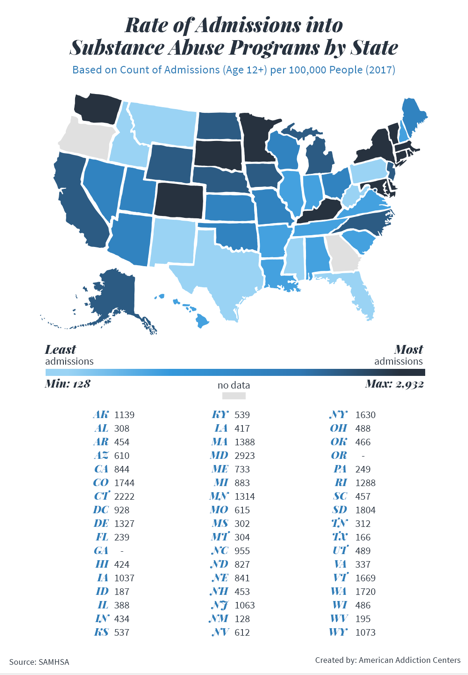A Comprehensive Overview to Substance Abuse Rehab
Substance Abuse rehab, frequently described as rehab, is a structured procedure developed to aid individuals get rid of dependancy on drugs, alcohol, or other habit forming compounds. It is not just about cleansing-- it is a trip of psychological, emotional, and physical improvement. Rehab facilities provide safe atmospheres where people can challenge the root triggers of their addiction, address mental triggers, and find out dealing mechanisms to suffer lasting soberness. This procedure is directed by experienced professionals, including therapists, medical doctors, and counselors that understand the complex nature of addiction as both a physiological and behavioral condition.
Recognizing the Core important Abuse Recovery
At its core, rehabilitation is about rebuilding a person's life. Addiction typically leaves deep marks-- stretched partnerships, economic distress, illness, and mental illness. With detailed rehab programs, individuals are given the tools to repair these aspects progressively. Rehabilitation isn't almost avoiding materials; it has to do with redeeming control and discovering one's feeling of self-regard. The programs highlight structure, consistency, and personal responsibility, which are crucial to long-lasting healing success. Every tiny landmark throughout rehab serves as a structure for lasting sobriety.
Substance Abuse Abuse rehab is not a one-size-fits-all method. It recognizes that everyone's addiction tale is one-of-a-kind-- what caused Substance Abuse misuse, how it proceeded, and exactly how recovery can be sustained differ commonly. For that reason, treatment facilities customize treatment plans based upon private analyses, making sure that every client obtains support that aligns with their mental state, addiction background, and life conditions. This customized approach considerably improves healing end results and helps prevent regression once individuals rehabilitate right into everyday life.
The Benefits of Inpatient Rehab Programs
Inpatient rehab, also called property therapy, uses among the most reliable methods for those fighting serious Substance Abuse addiction. One of its key benefits is the organized and distraction-free atmosphere. When an individual goes into an inpatient center, they are temporarily removed from external triggers-- such as pals who utilize substances, stressful workplaces, or household disputes-- that may prevent their recuperation. This seclusion from adverse influences permits people to concentrate entirely on healing. Living within a encouraging and monitored setting creates the security required to damage old practices and form healthier patterns of actions.
One more major benefit of inpatient rehab is the 24/7 professional guidance readily available per individual. Withdrawal signs from drugs or alcohol can be unpredictable and, in some instances, life-threatening. Inpatient centers have medical groups that supply day-and-night care, making certain individuals are safe and comfy during detoxing. Beyond physical wellness, constant supervision likewise offers psychological peace of mind-- patients recognize that help is readily available at any moment, which reduces stress and anxiety and develops trust fund in the healing procedure. This instant accessibility to medical and emotional support dramatically enhances the success price compared to outpatient care for extreme addictions.
Inpatient rehab programs promote a strong feeling of community and responsibility. People interact with others that share comparable struggles, get involved in group therapy, and participate in tasks that encourage team effort and compassion. This environment nurtures mutual understanding and reduces feelings of isolation often associated with dependency. By attaching with peers and picking up from their experiences, individuals establish social bonds that remain to sustain them also after leaving the facility. This sense of belonging, integrated with constant expert advice, makes inpatient rehabilitation a highly effective foundation for sustainable healing.
Inpatient Rehab Services Provided
Inpatient rehab centers use a varied array of solutions made to treat the spirit, body, and mind at the same time. The initial stage usually includes medical cleansing, a process that securely gets rid of materials from the body while taking care of withdrawal signs and symptoms. Detoxification is managed by physician who may provide medication to ease discomfort and protect against difficulties. As soon as detoxification is total, clients transition to structured day-to-day programs that consist of health, therapy, and counseling tasks. This integrated method guarantees that patients not only overcome physical dependancy however also address emotional and emotional aspects of dependency.
Restorative services go to the heart of inpatient rehab. Facilities deal individual therapy sessions, where patients function one-on-one with qualified therapists to reveal the underlying causes of their dependency-- such as trauma, mental health problems, or unresolved psychological pain. Cognitive-behavioral therapy (CBT), dialectical behavior modification (DBT), and motivational talking to are among the most usual evidence-based methods utilized. Furthermore, group treatment sessions provide an encouraging space for individuals to share experiences, gain viewpoint, and develop social abilities. Family treatment is additionally often consisted of, aiding to rebuild depend on and boost communication between individuals and their enjoyed ones.
Beyond conventional treatment, several inpatient programs include entertainment and holistic services to promote general health - substance abuse treatment Morris County. Yoga, meditation, art therapy, and fitness programs help decrease anxiety and show mindfulness. Nutritional therapy makes certain that patients rebuild physical health, as Substance Abuse typically diminishes the body's necessary nutrients. Some rehabilitation focuses also supply vocational training and educational workshops to help patients get ready for reintegration into culture. These varied services are developed to recover the entire individual-- not just deal with addiction signs and symptoms-- by fostering purpose, strength, and equilibrium
Why You Need To Consider Outpatient Programs
While inpatient rehabilitation uses a extensive and immersive strategy, outpatient programs give an option that enables versatility for people who can not dedicate to full-time household therapy. Outpatient rehab enables clients to receive organized treatment and medical support while maintaining their day-to-day duties-- such as school, household, or work treatment. For many people with mild to modest addiction, outpatient therapy provides the excellent balance in between recuperation and daily life. It enables patients to exercise the coping skills they find out in real-world atmospheres, strengthening their durability in the face of daily challenges.
Another factor to think about outpatient programs is their cost-effectiveness. Inpatient care can be expensive due to lodging, dishes, and 24-hour guidance, which might not be monetarily possible for every person. Outpatient programs, however, commonly cost less because they do not need household stays. Lots of facilities use sliding-scale payment alternatives or accept insurance coverage to make therapy available. For those that have actually already finished inpatient rehab, transitioning into an outpatient program functions as an important continuum of care, aiding maintain responsibility and avoid regression via ongoing assistance.
In addition, outpatient programs provide a high degree of personalization. Patients can select in between partial hospitalization programs (PHP), intensive outpatient programs (IOP), or common outpatient treatment, depending upon their degree of requirement. Each alternative gives varying degrees of structure and time commitment. As an read the full info here example, IOPs usually involve several treatment sessions per week, while typical outpatient treatment may include regular therapy check outs. This flexibility makes certain that individuals can receive professional help customized to their recovery phase, making outpatient programs a useful and encouraging selection for long-term recuperation maintenance.

Exploring Other Therapy Alternatives basically Abuse Recovery
Past inpatient and outpatient rehab, there are numerous various other treatment options readily available for people looking for recuperation from Substance Abuse dependency (addiction treatment). Medication-assisted therapy (FLOOR COVERING) is one such method, integrating recommended drugs with behavioral therapy to handle withdrawal symptoms and lower food cravings. Medications like naltrexone, methadone, or buprenorphine are commonly used in opioid dependency therapy, while acamprosate or disulfiram may sustain alcohol recovery. Floor covering helps support mind chemistry, allowing individuals to concentrate on therapy and way of living changes without the frustrating pain of withdrawal

Different treatments are likewise ending up being progressively popular in Substance Abuse Abuse therapy. These might include all natural techniques like acupuncture, horse therapy, adventure-based therapy, and spiritual healing programs. While these methods may not replace typical treatment, they can match it by improving psychological guideline, self-awareness, and confidence. The objective of checking out different therapy choices is to create a recuperation plan that reverberates with each person's values, beliefs, and way of he said living. A tailored combination of therapies typically yields one of the most sustainable outcomes, equipping people to live a satisfying, substance-free life.
The Course to Long-Term Sobriety and Recovery
Completing rehab-- whether inpatient or outpatient-- is only the beginning of a long-lasting recovery trip. Aftercare programs play an important role in preserving soberness and protecting against relapse. These programs might include continuous treatment, support system like Narcotics Anonymous or Alcoholics Anonymous, and sober living plans that provide continued framework. Consistency and neighborhood are essential; individuals who remain linked to recuperation networks are more probable to maintain long-term development. Rehabilitation shows the necessary coping abilities, yet aftercare guarantees that those skills are used and enhanced in real-life scenarios.
Lasting recovery likewise depends upon way of life modifications that sustain physical and psychological wellness. Developing healthy and balanced routines-- such as regular exercise, balanced nutrition, and mindfulness techniques-- aids recover equilibrium to the mind and body. Taking part in deliberate activities like volunteering, going after hobbies, or reconnecting with loved ones can fill up the emotional gap left by Substance Abuse usage. Developing a positive way of thinking and focusing on future objectives provide recuperating individuals a renewed feeling of identification and direction. Sobriety is not about starvation; it's concerning recovering life's richness and possibilities.

Through extensive rehab programs, individuals are given the tools to repair these facets progressively. Inpatient rehab programs promote a strong sense of community and accountability. While inpatient rehabilitation uses a extensive and immersive method, outpatient programs offer an alternative that permits versatility for individuals that can not dedicate to full-time household treatment. Outpatient rehabilitation enables patients to receive structured treatment and clinical assistance while keeping their everyday responsibilities-- such as family members, work, or college treatment. Beyond inpatient and outpatient rehabilitation, there are several other therapy choices readily available for individuals looking for recovery from Substance Abuse addiction.